We’re delighted to offer a selection of latest releases from our core subjects of Anthropology, Development Studies, Environmental Studies, Film Studies, and History, along with our New in Paperback titles.
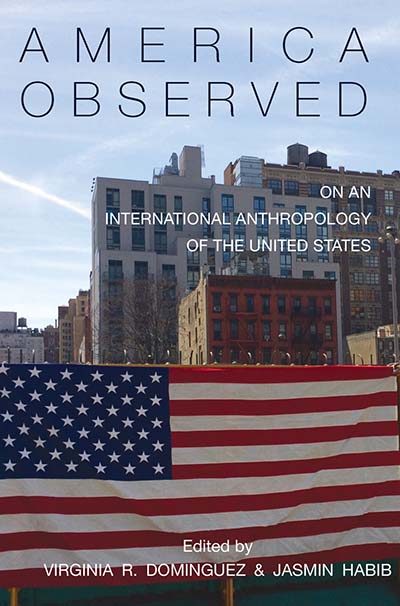 Paperback Original
Paperback Original
AMERICA OBSERVED
On an International Anthropology of the United States
Edited by Virginia Dominguez and Jasmin Habib
Afterword by Jane C. Desmond
There is surprisingly little fieldwork done on the United States by anthropologists from abroad. America Observed fills that gap by bringing into greater focus empirical as well as theoretical implications of this phenomenon. Edited by Virginia Dominguez and Jasmin Habib, the essays collected here offer a critique of such an absence, exploring its likely reasons while also illustrating the advantages of studying fieldwork-based anthropological projects conducted by colleagues from outside the U.S. This volume contains an introduction written by the editors and fieldwork-based essays written by Helena Wulff, Jasmin Habib, Limor Darash, Ulf Hannerz, and Moshe Shokeid, and reflections on the broad issue written by Geoffrey White, Keiko Ikeda, and Jane Desmond. Suitable for introductory and mid-level anthropology courses, America Observed will also be useful for American Studies courses both in the U.S. and elsewhere.
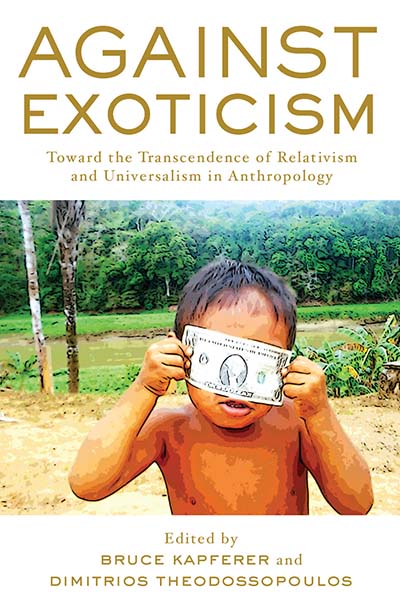
Paperback Original
AGAINST EXOTICISM
Toward the Transcendence of Relativism and Universalism in Anthropology
Edited by Bruce Kapferer and Dimitrios Theodossopoulos
Anthropology begins in the encounter with the ‘exotic’: what stands outside of—and challenges—conventional or established understandings. This volume confronts the distortions of orientalism, ethnocentrism, and romantic nostalgia to expose exoticism, defined as the construction of false and unsubstantiated difference. Its aim is to re-found the importance of the exotic in the development of anthropological knowledge and to overcome methodological dualisms and dualistic approaches.
Chapters look at the risk of exoticism in the perspectivist approach, the significant exotic corrective of Lévi-Strauss vis-à-vis an imperializing Eurocentrism, our nostalgic relationship with the ethnographic record, and the attempts of local communities to readapt previous exoticized referents, renegotiate their identity, and ‘counter-exoticize.’ This volume demonstrates a range of approaches that will be valuable for researchers and students seeking to effectively establish comparative methodological frameworks that transcend issues of relativism and universalism.
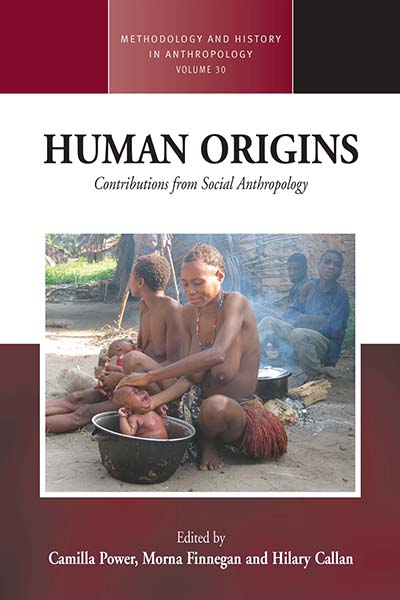 Paperback Original
Paperback Original
HUMAN ORIGINS
Contributions from Social Anthropology
Edited by Camilla Power, Morna Finnegan and Hilary Callan
Afterword by Alan Barnard
Volume 30, Methodology & History in Anthropology
Human Origins brings together new thinking by social anthropologists and other scholars on the evolution of human culture and society. No other discipline has more relevant expertise to consider the emergence of humans as the symbolic species. Yet, social anthropologists have been conspicuously absent from debates about the origins of modern humans. These contributions explore why that is, and how social anthropology can shed light on early kinship and economic relations, gender politics, ritual, cosmology, ethnobiology, medicine, and the evolution of language.
Read Introduction
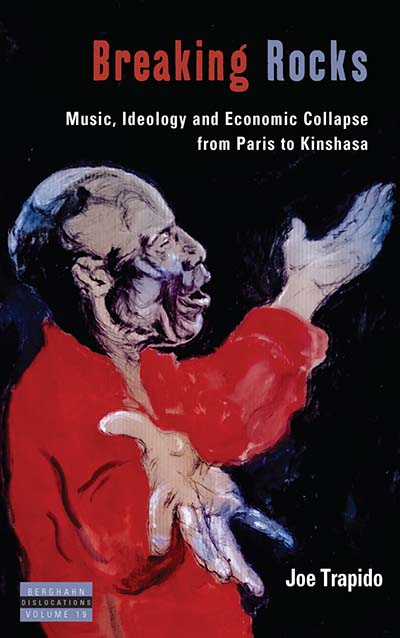 BREAKING ROCKS
BREAKING ROCKS
Music, Ideology and Economic Collapse, from Paris to Kinshasa
Joe Trapido
Volume 19, Dislocations
Based on fieldwork in Kinshasa and Paris, Breaking Rocks examines patronage payments within Congolese popular music, where a love song dedication can cost 6,000 dollars and a simple name check can trade for 500 or 600 dollars. Tracing this system of prestige through networks of musicians and patrons – who include gangsters based in Europe, kleptocratic politicians in Congo, and lawless diamond dealers in northern Angola – this book offers insights into ideologies of power and value in central Africa’s troubled post-colonial political economy, as well as a glimpse into the economic flows that make up the hidden side of the globalization.
Read Introduction
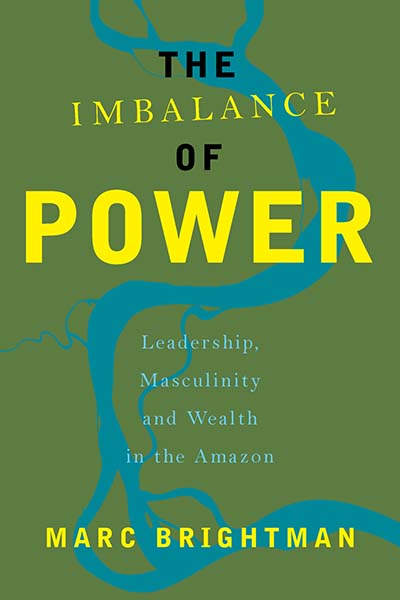 THE IMBALANCE OF POWER
THE IMBALANCE OF POWER
Leadership, Masculinity and Wealth in the Amazon
Marc Brightman
Amerindian societies have an iconic status in classical political thought. For Montaigne, Hobbes, Locke, Hume and Rousseau, the native American ‘state of nature’ operates as a foil for the European polity. Challenging this tradition, The Imbalance of Power demonstrates ethnographically that the Carib speaking indigenous societies of the Guiana region of Amazonia do not fit conventional characterizations of ‘simple’ political units with ‘egalitarian’ political ideologies and ‘harmonious’ relationships with nature. Marc Brightman builds a persuasive and original theory of Amerindian politics: far from balanced and egalitarian, Carib societies are rife with tension and difference; but this imbalance conditions social dynamism and a distinctive mode of cohesion.
Read Introduction
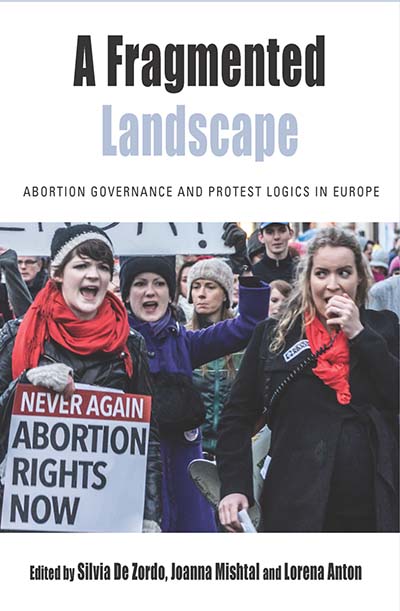 A FRAGMENTED LANDSCAPE
A FRAGMENTED LANDSCAPE
Abortion Governance and Protest Logics in Europe
Edited by Silvia De Zordo, Joanna Mishtal, and Lorena Anton
Volume 20, Protest, Culture & Society
Since World War II, abortion policies have remained remarkably varied across European nations, with struggles over abortion rights at the forefront of national politics. This volume analyses European abortion governance and explores how social movements, political groups, and individuals use protests and resistance to influence abortion policy. Drawing on case studies from Italy, Spain, Norway, Poland, Romania, Russia, Sweden, Switzerland, the United Kingdom and the European Union, it analyses the strategies and discourses of groups seeking to liberalise or restrict reproductive rights. It also illuminates the ways that reproductive rights politics intersect with demographic anxieties, as well as the rising nationalisms and xenophobia related to austerity policies, mass migration and the recent terrorist attacks in Europe.
Read Introduction
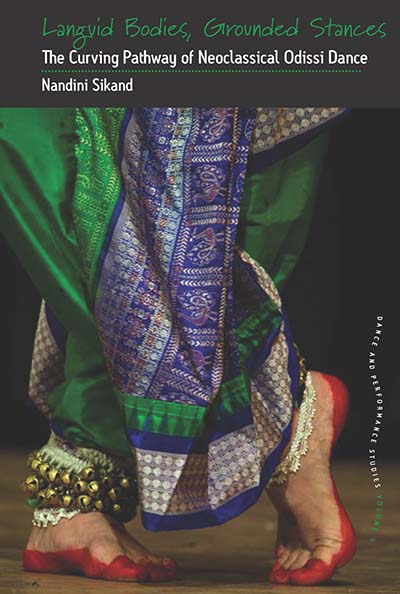 LANGUID BODIES, GROUNDED STANCES
LANGUID BODIES, GROUNDED STANCES
The Curving Pathway of Neoclassical Odissi Dance
Nandini Sikand
Volume 9, Dance and Performance Studies
Widely believed to be the oldest Indian dance tradition, odissi has transformed over the centuries from a sacred temple ritual to a transnational genre performed—and consumed—throughout the world. Building on ethnographic research in multiple locations, this book charts the evolution of odissi dance and reveals the richness, rigor, and complexity of the form as it is practiced today. As author and dancer-choreographer Nandini Sikand shows, the story of odissi is ultimately a story of postcolonial India, one in which identity, nationalism, tradition, and neoliberal politics dramatically come together.
Read Introduction: Towards a Global Community
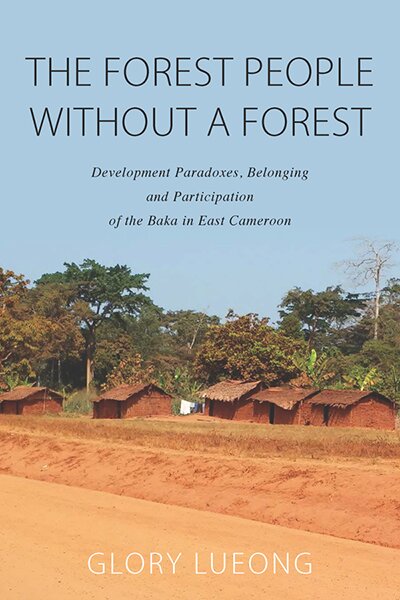 THE FOREST PEOPLE WITHOUT A FOREST
THE FOREST PEOPLE WITHOUT A FOREST
Development Paradoxes, Belonging and Participation of the Baka in East Cameroon
Glory M. Lueong
Development interventions often generate contradictions around questions of who benefits from development and which communities are targeted for intervention. This book examines how the Baka, who live in Eastern Cameroon, assert forms of belonging in order to participate in development interventions, and how community life is shaped and reshaped through these interventions. Often referred to as ‘forest people’, the Baka have witnessed many recent development interventions that include competing and contradictory policies such as ‘civilize’, assimilate and integrate the Baka into ‘full citizenship’, conserve the forest and wildlife resources, and preserve indigenous cultures at the verge of extinction.
Read Introduction
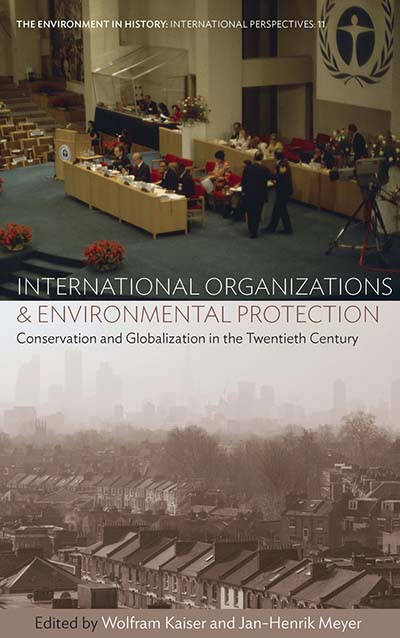 INTERNATIONAL ORGANIZATIONS AND ENVIRONMENTAL PROTECTION
INTERNATIONAL ORGANIZATIONS AND ENVIRONMENTAL PROTECTION
Conservation and Globalization in the Twentieth Century
Edited by Wolfram Kaiser and Jan-Henrik Meyer
Pollution, resource depletion, habitat management, and climate change are all issues that necessarily transcend national boundaries. Accordingly, they and other environmental concerns have been a particular focus for international organizations from before the First World War to the present day. This volume is the first to comprehensively explore the environmental activities of professional communities, NGOs, regional bodies, the United Nations, and other international organizations during the twentieth century. It follows their efforts to shape debates about environmental degradation, develop binding intergovernmental commitments, and—following the seminal 1972 Conference on the Human Environment—implement and enforce actual international policies.
 STARS AND STARDOM IN BRAZILIAN CINEMA
STARS AND STARDOM IN BRAZILIAN CINEMA
Edited by Tim Bergfelder, Lisa Shaw and João Luiz Vieira
Despite the recent explosion of scholarly interest in “star studies,” Brazilian film has received comparatively little attention. As this volume demonstrates, however, the richness of Brazilian stardom extends well beyond the ubiquitous Carmen Miranda. Among the studies assembled here are fascinating explorations of figures such as Eliane Lage (the star attraction of São Paulo’s Vera Cruz studios), cult horror movie auteur Coffin Joe, and Lázaro Ramos, the most visible Afro-Brazilian actor today. At the same time, contributors interrogate the inner workings of the star system in Brazil, from the pioneering efforts of silent-era actresses to the recent advent of the non-professional movie star.
Read Introduction
 SENSITIVE PASTS
SENSITIVE PASTS
Questioning Heritage in Education
Edited by Carla van Boxtel, Maria Grever, and Stephan Klein
Volume 27, Making Sense of History
Heritage, as an area of research and learning, often deals with difficult historical questions, due to the strong emotions and political commitments that are often at stake. In this, it poses particular challenges for teachers, museum educators and the publics they serve. Guided by a shared focus on these “sensitive pasts,” the contributors to this volume draw on new theoretical and empirical research to provide valuable insights into heritage pedagogy. Together they demonstrate the potential of heritage as a historical-educational domain that transcends myopic patriotism, parochialism and simplistic relativism, helping to enhance critical and sophisticated historical thinking.
Read Introduction: The Appeal of Heritage in Education
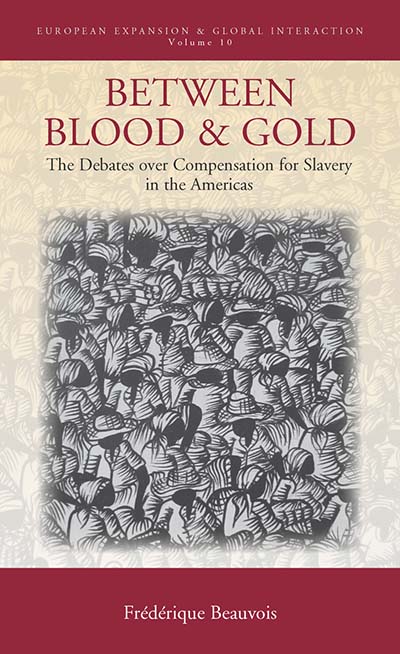 BETWEEN BLOOD AND GOLD
BETWEEN BLOOD AND GOLD
The Debates over Compensation for Slavery in the Americas
Frédérique Beauvois
Volume 10, European Expansion & Global Interaction
Today, a century and a half after the abolition of slavery across most of the Americas, the idea of monetary reparations for former slaves and their descendants continues to be a controversial one. Lost among these debates, however, is the fact that such payments were widespread in the nineteenth century—except the “victims” were not slaves, but the slaveholders deprived of their labor. This landmark comparative study analyzes the debates over compensation within France and Great Britain. It lays out in unprecedented detail the philosophical, legal-political, and economic factors at play, establishing a powerful new model for understanding the aftermath of slavery in the Americas.
Read Introduction: Compensation as a Driving Force for Abolition
 XENOCRACY
XENOCRACY
State, Class, and Colonialism in the Ionian Islands, 1815-1864
Sakis Gekas
Of the many European territorial reconfigurations that followed the wars of the early nineteenth century, the Ionian State remains among the least understood. Xenocracy offers a much-needed account of the region during its half-century as a Protectorate of Great Britain—a period that embodied all of the contradictions of British colonialism. A middle class of merchants, lawyers and state officials embraced and promoted a liberal modernization project. Yet despite the improvements experienced by many Ionians, the deterioration of state finances led to divisions along class lines and presented a significant threat to social stability. As author Sakis Gekas shows, the ordeal engendered dependency upon and ambivalence toward Western Europe, anticipating the “neocolonial” condition with which the Greek nation struggles even today.
Read Introduction
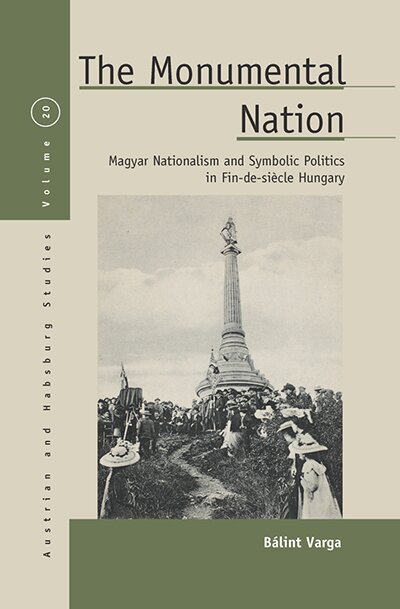 THE MONUMENTAL NATION
THE MONUMENTAL NATION
Magyar Nationalism and Symbolic Politics in Fin-de-siècle Hungary
Bálint Varga
Volume 20, Austrian and Habsburg Studies
From the 1860s onward, Habsburg Hungary attempted a massive project of cultural assimilation to impose a unified national identity on its diverse populations. In one of the more quixotic episodes in this “Magyarization,” large monuments were erected near small towns commemorating the medieval conquest of the Carpathian Basin—supposedly, the moment when the Hungarian nation was born. This exactingly researched study recounts the troubled history of this plan, which—far from cultivating national pride—provoked resistance and even hostility among provincial Hungarians. Author Bálint Varga thus reframes the narrative of nineteenth-century nationalism, demonstrating the complex relationship between local and national memories.
Read Introduction
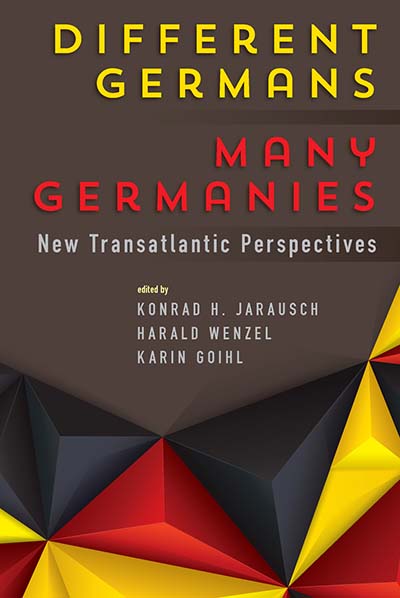 DIFFERENT GERMANS, MANY GERMANIES
DIFFERENT GERMANS, MANY GERMANIES
New Transatlantic Perspectives
Edited by Konrad H. Jarausch, Harald Wenzel, and Karin Goihl
As much as any other nation, Germany has long been understood in terms of totalizing narratives. For Anglo-American observers in particular, the legacies of two world wars still powerfully define twentieth-century German history, whether through the lens of Nazi-era militarism and racial hatred or the nation’s emergence as a “model” postwar industrial democracy. This volume transcends such common categories, bringing together transatlantic studies that are unburdened by the ideological and methodological constraints of previous generations of scholarship. From American perceptions of the Kaiserreich to the challenges posed by a multicultural Europe, it argues for—and exemplifies—an approach to German Studies that is nuanced, self-reflective, and holistic.
Read Introduction
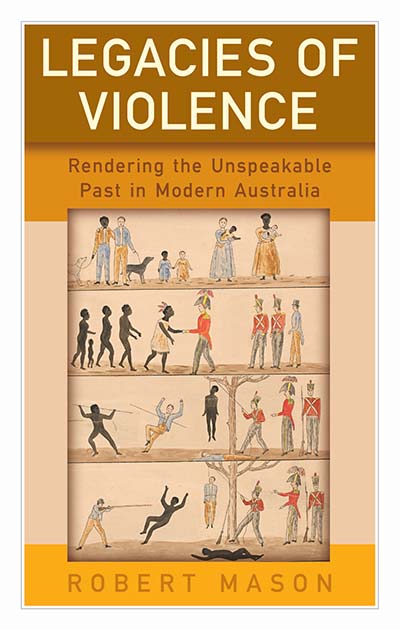 LEGACIES OF VIOLENCE
LEGACIES OF VIOLENCE
Rendering the Unspeakable Past in Modern Australia
Edited by Robert Mason
Whether in the form of warfare, dispossession, forced migration, or social prejudice, Australia’s sense of nationhood was born from—and continues to be defined by—experiences of violence. Legacies of Violence probes this brutal legacy through case studies that range from the colonial frontier to modern domestic spaces, exploring themes of empathy, isolation, and Australians’ imagined place in the world. Moving beyond the primacy that is typically accorded white accounts of violence, contributors place particular emphasis on the experiences of those perceived to be on the social periphery, repositioning them at the center of Australia’s relationship to global events and debates.
Read Introduction: Rendering the Legacies of the Past
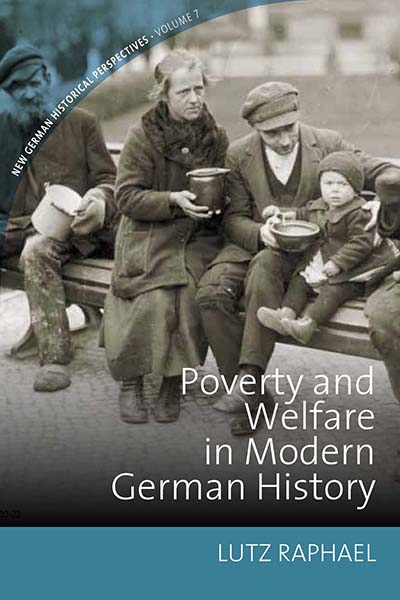 POVERTY AND WELFARE IN MODERN GERMAN HISTORY
POVERTY AND WELFARE IN MODERN GERMAN HISTORY
Edited by Lutz Raphael
Volume 7, New German Historical Perspectives
For many, the history of German social policy is defined primarily by that nation’s postwar emergence as a model of the European welfare state. As this comprehensive volume demonstrates, however, the question of how to care for the poor has had significant implications for German history throughout the modern era. Here, eight leading historians provide essential case studies and syntheses of current research into German welfare, from the Holy Roman Empire to the present day. Along the way, they trace the parallel historical dynamics that have continued to shape German society, including religious diversity, political exclusion and inclusion, and concepts of race and gender.
 MICROHISTORIES OF THE HOLOCAUST
MICROHISTORIES OF THE HOLOCAUST
Edited by Claire Zalc and Tal Bruttmann
Volume 24, War and Genocide
How does scale affect our understanding of the Holocaust? In the vastness of its implementation and the sheer amount of death and suffering it produced, the genocide of Europe’s Jews presents special challenges for historians, who have responded with work ranging in scope from the world-historical to the intimate. In particular, recent scholarship has demonstrated a willingness to study the Holocaust at scales as focused as a single neighborhood, family, or perpetrator. This volume brings together an international cast of scholars to reflect on the ongoing microhistorical turn in Holocaust studies, assessing its historiographical pitfalls as well as the distinctive opportunities it affords researchers.
Read Introduction: Towards a Microhistory of the Holocaust
New in Paperback
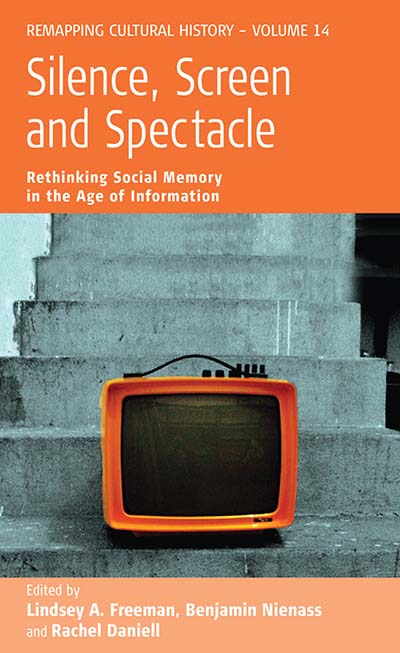 SILENCE, SCREEN, AND SPECTACLE
SILENCE, SCREEN, AND SPECTACLE
Rethinking Social Memory in the Age of Information
Edited by Lindsey A. Freeman, Benjamin Nienass, and Rachel Daniell
Volume 14, Remapping Cultural History
In an age of information and new media the relationships between remembering and forgetting have changed. This volume addresses the tension between loud and often spectacular histories and those forgotten pasts we strain to hear. Employing social and cultural analysis, the essays within examine mnemonic technologies both new and old, and cover subjects as diverse as U.S. internment camps for Japanese Americans in WWII, the Canadian Indian Residential School system, Israeli memorial videos, and the desaparecidos in Argentina. Through these cases, the contributors argue for a re-interpretation of Guy Debord’s notion of the spectacle as a conceptual apparatus through which to examine the contemporary landscape of social memory, arguing that the concept of spectacle might be developed in an age seen as dissatisfied with the present, nervous about the future, and obsessed with the past. Perhaps now “spectacle” can be thought of not as a tool of distraction employed solely by hegemonic powers, but instead as a device used to answer Walter Benjamin’s plea to “explode the continuum of history” and bring our attention to now-time.
Read Introduction
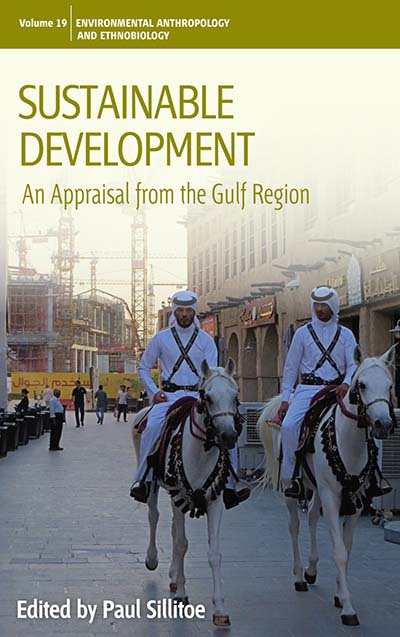 SUSTAINABLE DEVELOPMENT
SUSTAINABLE DEVELOPMENT
An Appraisal from the Gulf Region
Edited by Paul Sillitoe
Volume 19, Environmental Anthropology and Ethnobiology
This volume gives a wide ranging introduction focusing on the arid Gulf region, where the challenges of sustainable development are starkly evident. The Gulf relies on non-renewable oil and gas exports to supply the world’s insatiable CO2 emitting energy demands, and has built unsustainable conurbations with water supplies dependent on energy hungry desalination plants and deep aquifers pumped beyond natural replenishment rates. Sustainable Development has an interdisciplinary focus, bringing together university faculty and government personnel from the Gulf, Europe, and North America — including social and natural scientists, environmentalists and economists, architects and planners — to discuss topics such as sustainable natural resource use and urbanization, industrial and technological development, economy and politics, history and geography.
Read Introduction: Sustainable Development in the Gulf: some introductory remarks
 2014 PREMIO LIMINA PRIZE FOR BEST FILM STUDIES BOOK (IN A LANGUAGE OTHER THAN ITALIAN)
2014 PREMIO LIMINA PRIZE FOR BEST FILM STUDIES BOOK (IN A LANGUAGE OTHER THAN ITALIAN)
THE EMERGENCE OF FILM CULTURE
Knowledge Production, Institution Building, and the Fate of the Avant-garde in Europe, 1919-1945
Edited by Malte Hagener
Volume 16, Film Europa
“…the book offers a rich and articulated picture of the organization and building of film culture in interwar Europe, and proves to be very keen in disclosing unexplored corners of well-known national film histories (as the Italian and German ones), but also of little explored scenarios (such as Swedish film culture or the Yugoslavian case).” · Historical Journal of Film, Radio and Television
Read Introduction: The Emergence of Film Culture
